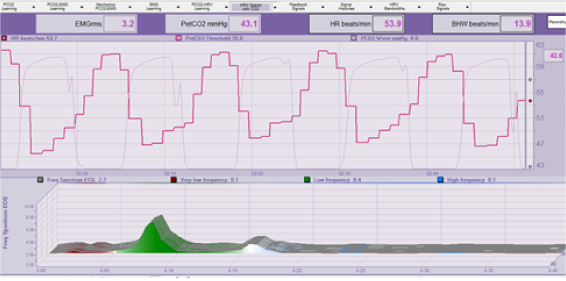Unless in a coma or a highly trained yogi who doesn’t sleep or move, breathing rhythms will change throughout the day and night depending on the situation at hand. It changes as a function of what a person is doing or is about to do. For instance, anxiety causes sympathetic activation which prepares the body for fight or flight. Sprinting calls for different metabolic needs –and hence a different breathing pattern– than sitting down or sleeping. REM state sleep may cause a faster breathing pattern than deep sleep.
Just as calorie requirements change as a function of our activity and temperature, breathing will change based on environmental energy and internal physiological requirements to keep our body chemistry in balance. What should stay balanced is one’s internal chemistry (CO2 /pH /electrolytes/oxyhemoglobin affinity).
Chronic dysfunctional breathing will throw this balance off. While it won’t kill us in the short term due to buffer systems, left unchecked, it will deteriorate health and performance. Chronic over-breathing causes the kidneys to compensate for the pH imbalance. Over time, this decreases *CO2 adaptation and reduces the bicarbonate buffer system – making one’s internal chemistry less resilient to environmental swings. If buffers aren’t able to respond adequately or quickly to changing conditions, symptoms eventually flare. The breathing health quiz will help you discern whether your buffer system and breathing habit are working for you.


